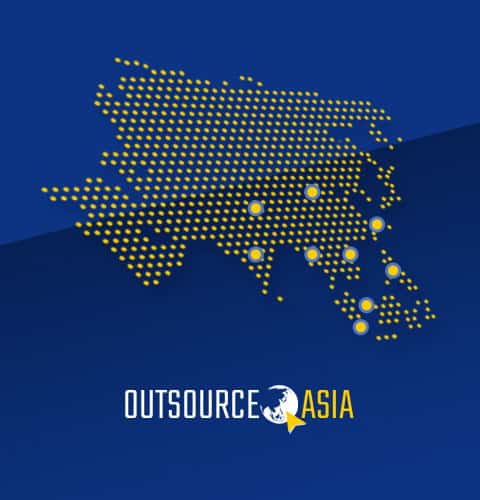
How to Select the Right Outsourcing Partner in 2024
Outsourcing has become an integral part of many businesses, offering opportunities for cost savings, access to specialized skills, and increased efficiency. However, the success of outsourcing initiatives largely depends on choosing the right outsourcing partner. As we navigate through the complexities of the business landscape, it’s crucial to address the common problems and challenges associated with outsourcing and equip ourselves with the knowledge to make informed decisions. In this article, we’ll explore key factors to consider when selecting an outsourcing partner in 2024.
I Common Challenges in Outsourcing
Before delving into the tips for selecting the right outsourcing partner, let’s identify some common outsourcing challenges businesses often face:
1. Communication Barriers
a. Cultural Differences: Diverse cultural backgrounds among teams can lead to variations in communication style, etiquette, and perspective. Misunderstandings may arise due to different interpretations of instructions or project requirements and can hinder collaborations.
b. Language Proficiency: Language barriers, especially in non-native English-speaking countries, can result in miscommunication. This may lead to errors, delays, or even the misinterpretation of critical project details.
2. Quality Concerns
a. Varying Standards: Different regions may have varying quality standards and work practices. It’s important to ensure that your outsourcing partner adheres to the same quality benchmarks as your organization.
b. Lack of Understanding: A lack of understanding of your business processes, goals, and quality expectations can lead to subpar deliverables. Clear communication and documentation are vital to bridge this gap and to maintain consistent quality of work.
3. Data Security Risks
a. Data Handling Protocols: Inadequate data security measures, such as weak encryption, lack of access controls, or poor data backup policies, can expose sensitive information to the risk of unauthorized access or cyber attacks.
b. Compliance Issues: Failure to comply with industry policies or data protection laws may expose businesses to security breaches and result to legal consequences. Ensure that your outsourcing partner is well-versed and compliant with relevant regulations.
4. Lack of Accountability
a. Unclear Responsibilities: Ambiguous project scopes and undefined tasks can lead to a lack of accountability. Both parties must have a clear understanding of their roles and responsibilities to avoid finger-pointing in case of issues.
b. Inadequate Monitoring: Without robust project management and monitoring mechanisms, it becomes challenging to track progress and identify issues early on. Regular updates and performance evaluations are critical for maintaining accountability and adhering to project timelines.
5. Wrong Choice of Location
a. Time Zone Differences: Misaligned time zones can result in confusion and delayed communication. This may impact the responsiveness of your outsourcing partner and hinder real-time collaboration.
b. Cultural Mismatch: A lack of cultural understanding can lead to friction and misalignment in work styles and outputs. Choosing a geographical location with a similar work culture can promote a smoother teamwork.
By understanding these challenges, businesses can proactively address them when selecting an outsourcing partner. It’s essential to prioritize effective communication, set clear standards, and carefully evaluate potential partners to mitigate these common pitfalls associated with outsourcing.
II. Tips for Selecting the Right Outsourcing Partner in 2024
Let’s now delve into how your business can make informed decisions when choosing an outsourcing partner:
- Define Your Objectives Clearly
Clearly outline the scope, objectives, and deliverables of your project. This will serve as a roadmap for selecting a partner with the right expertise and capabilities. This also ensures that you and your outsourcing partner share a shared understanding of your business goals, project requirements, and expectations, preventing miscommunications later in the project.
- Thoroughly Research Potential Partners
Utilize online resources and platforms to research and shortlist potential outsourcing partners. Read and analyze client reviews, case studies, and testimonials to gauge their reputation and reliability and gain insights on the past performances of each outsourcing candidate.
- Assess Technical Proficiency
Ensure that your outsourcing partner possesses the technical skills and capabilities required for your specific project. Consider their experience in handling similar projects and their expertise in relevant technologies. Assess their technical proficiency in meeting the requirements for your project to guarantee successful execution.
- Check Communication Channels
Effective communication is key to successful outsourcing. Check the communication channels and language proficiency of your outsourcing partner to minimize the risk of misunderstandings. A well-defined communication plan that includes regular updates, meetings, and reporting structures fosters effective cooperation and prevents breakdowns.
- Prioritize Data Security
In the digital age, safeguarding sensitive information is paramount. Evaluate your outsourcing partner’s data security measures, compliance with industry standards, and their commitment to confidentiality. Prioritize partners with a strong commitment to data protection to mitigate the risk of security breaches.
- Review Contractual Agreements
Thoroughly review and negotiate contractual terms and agreements. Clearly define project scope, deliverables, timelines, and performance metrics. A well-drafted contract helps establish expectations, ensures accountability, and provides a legal framework for dispute resolution if needed.
- Visit Offshore Facilities
If possible, try visiting the offshore facilities of your outsourcing partner. This provides firsthand insights into their infrastructure, working environment, and the caliber of their team. It also allows you to gauge the level of professionalism and commitment to quality.
- Consider Cultural Compatibility
Cultural differences can impact collaboration. Consider cultural compatibility to ensure smooth cooperation and minimize potential conflicts arising from differences in viewpoints and work styles. Evaluate whether your outsourcing partner’s work culture aligns with your organizational values to ensure that their team can seamlessly integrate with your in-house team.
- Check Financial Stability
Check the financial stability of your outsourcing partner. A financially sound partner is more likely to invest in infrastructure, training, and technology, indicating long-term reliability and commitment to the partnership.
- Seek Scalability and Flexibility
Choose an outsourcing partner with the scalability to accommodate your business growth. Additionally, ensure flexibility in adapting to changing project requirements and timelines. Assess their ability to adapt to changing project requirements, timelines, and unexpected challenges. A flexible partner is better equipped to navigate evolving business needs.
Follow these helpful tips to make well-informed decisions when selecting an outsourcing partner. The key is to prioritize clear communication, technical proficiency, and a shared commitment to quality and security to ensure a successful and enduring outsourcing partnership.
III. Outsource with Confidence: Outsource Asia
As you embark on your outsourcing journey in 2024, leverage the expertise and resources provided by Outsource Asia. This platform offers a comprehensive guide to finding the right outsourcing partner, emphasizing key factors such as technical proficiency, cultural compatibility, and data security. With Outsource Asia, you can overcome the common challenges associated with outsourcing, establish long-term partnerships, and empower your business to thrive in a dynamic and competitive global market.


